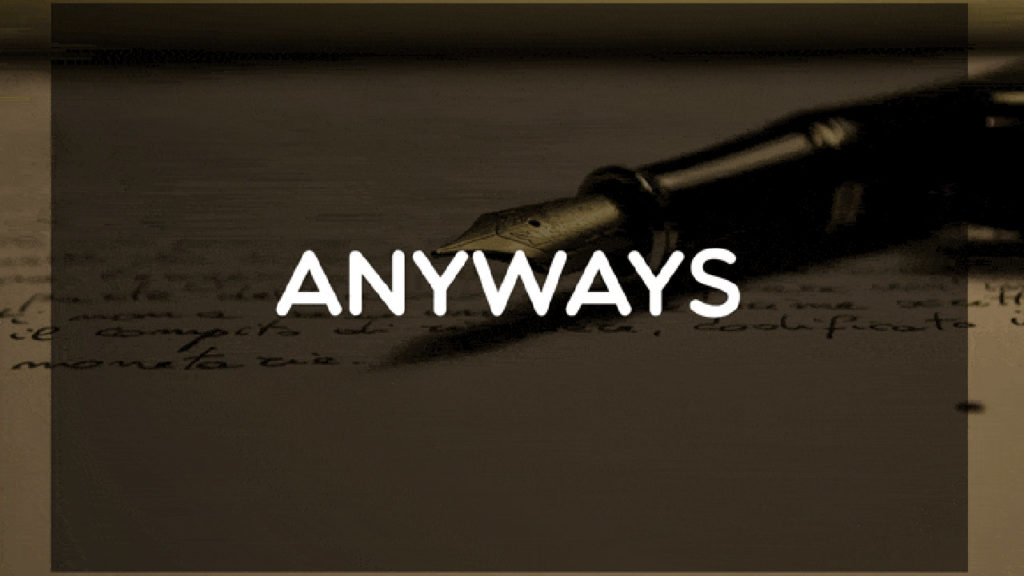“I can walk English, I can laugh English, I can run English, because English is such a funny language.” ~Amitabh Bachchan in Namak Halaal
But it would be namak halaali with English itself if we continue to misuse words from the beautiful language. Because as someone wiser than I once said, “Do what’s right, not what’s easy”
Here are some commonly misused words in the English language. Let’s do it right, folks. 🙂
1. Anyways
It never was a word and for what it’s worth, it is just a colloquial variant of the adverb anyway.
2. Fewer vs Less
Fewer is used when one talks about an actual number, while less is used when the count is undefined.
3. Literally
It means exactly as stated, so if you say you literally died, you shouldn’t be around to say that.
4. Revert
We all have, at some point used this word in a wrong way. Revert is often used as an alternative for reply. So writing “kindly revert back” in emails doesn’t mean that you are asking them to reply back, but going back to the situation / phase they were. Here’s the meaning.
5. Disinterested
This controversial difference which not many people know about, varies from each other a lot. Disinterested means impartial, whereas uninterested is the opposite of interested.
6. Lose/ Loose
Many people write loose, when they really mean lose. Loose means something that is not tight, and lose, of course is something you’re deprived of accident or misfortune.
7. Maybe / May be
Not sure if many would even notice the difference between the two. Maybe means perhaps and there’s no debate about it, whereas may be as two separate words can be used as “ He may be going to school today”.
8. Basically
People often say, basically I am from India or basically I live there, which is absolutely wrong usage. It can’t be used as a filler but remains as an adverb of manner.
9. Reply back
Reply itself means saying something in response to a question or whatever is asked from you, reply back makes no sense.
10. I am good
If someone asks you, how are you, your reply should be I am doing well and not I am good. No one is interested in to know if you’re good or bad as a person.
11. Hopefully
What is used as an alternative for “I hope”, is actually synonym for optimistically or if all goes well.
12. At least and all right
Atleast and alright do not exist. There’s at least and all right.
13. Prepone
Coined by Indian English speakers, the term prepone is used as an antonym for postpone, which is no word per se. The actual antonym for it will be- bring forward.
14. Proudy
The correct usage will be proud, proudy is no word.
15. Namesake
It means having the same name as the author, however, it is used in the literal sense, “in the name of”.
16. Stuff / stuffs
As an uncountable noun, stuff is grammatically wrong.
17. Improvise
To perform without preparation, which is used as an alternative for the word improve, in a rather wrong context altogether.
18. Like
Again used as a filler, like is not only misused but overused by many people. Like he was standing there and like I just reached out for him. That’s not how you do it people.
19. Supposed to
You never say “suppose to or use to”, always remember the “d”. You’re supposed to and used to, never the one without d.
20. Farther / Further
The former is the physical distance, and the latter is an advancement.
21. Feminist
This has to be that one word, which nobody understands, yet everybody talks about. Do you want know about it? Read this.
The aforementioned is just the brim of a vast pool. There are many such words that are wrongly used. Watch out for them.
